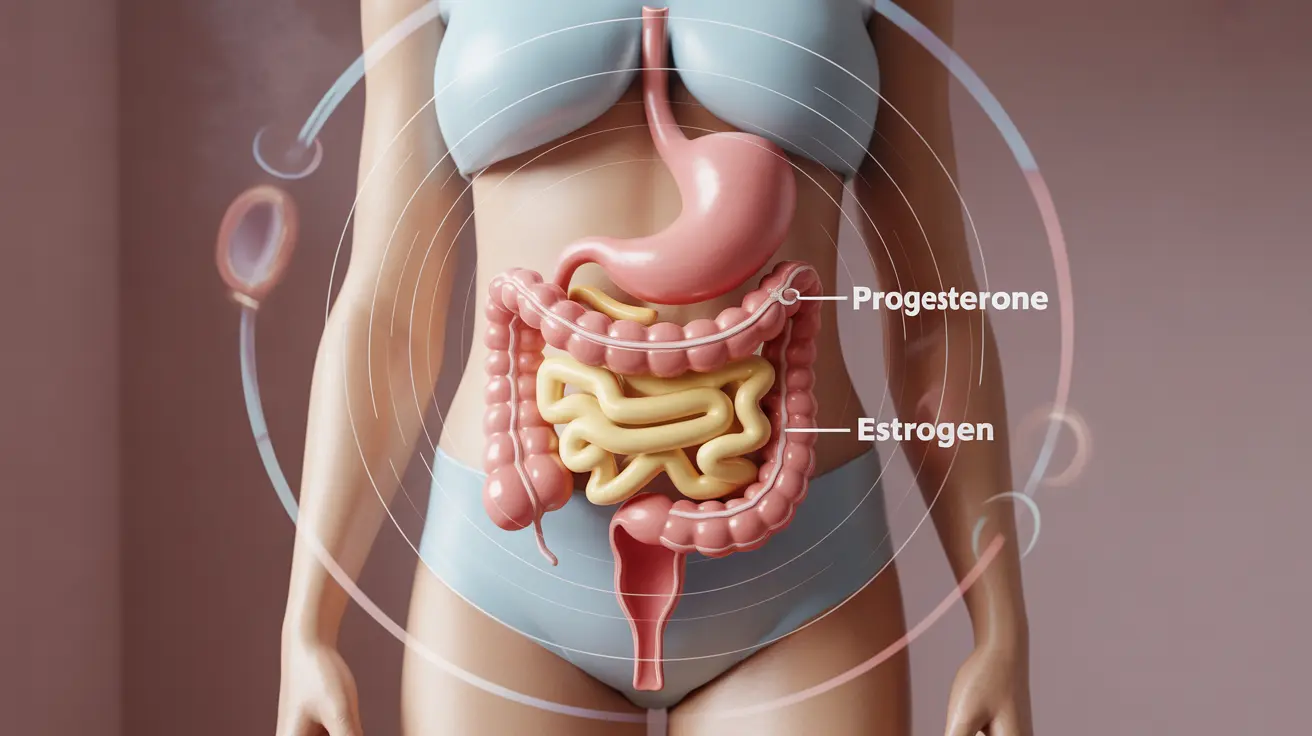Many women experience constipation before their menstrual period, a common but often overlooked premenstrual symptom. This digestive change can cause discomfort and concern, but understanding its causes and management strategies can help you navigate this monthly challenge more effectively.
If you've noticed changes in your bowel movements before your period, you're not alone. This article explores why constipation occurs during your menstrual cycle, how hormones influence your digestive system, and what you can do to find relief.
The Hormonal Connection to Premenstrual Constipation
The primary reason for constipation before your period lies in the complex interplay of hormones during your menstrual cycle. Progesterone levels rise during the luteal phase (the time between ovulation and your period), which can slow down digestive movement and lead to constipation.
Estrogen fluctuations also play a role in this process, affecting both fluid retention and the speed of digestion. These hormonal changes can make your digestive system less efficient at moving waste through your intestines.
Common Symptoms and Effects
When experiencing constipation before your period, you might notice:
- Fewer bowel movements than usual
- Harder, drier stools
- Straining during bowel movements
- Bloating and abdominal discomfort
- Feeling of incomplete evacuation
Natural Relief Strategies
Dietary Modifications
Making specific dietary changes can help manage constipation before your period:
- Increase fiber intake through fruits, vegetables, and whole grains
- Stay well-hydrated with water and herbal teas
- Include probiotic-rich foods in your diet
- Limit caffeine and processed foods
Lifestyle Changes
Several lifestyle adjustments can support better digestive health:
- Regular physical activity, especially walking or yoga
- Maintaining a consistent bathroom routine
- Stress management through relaxation techniques
- Getting adequate sleep
Medical Conditions That May Worsen Symptoms
Certain underlying conditions can exacerbate premenstrual constipation:
- Irritable Bowel Syndrome (IBS)
- Endometriosis
- Thyroid disorders
- Pelvic floor dysfunction
When to Seek Medical Help
Consider consulting a healthcare provider if you experience:
- Severe abdominal pain
- Blood in stools
- Persistent constipation lasting more than two weeks
- Significant changes in bowel habits
- Unexplained weight loss
Frequently Asked Questions
Why do I get constipated before my period starts?
Constipation before your period primarily occurs due to increased progesterone levels during the luteal phase of your menstrual cycle. This hormone can slow down digestive movement and make bowel movements more difficult.
How do hormonal changes like progesterone and estrogen cause constipation before menstruation?
Progesterone relaxes smooth muscle tissue throughout your body, including your digestive tract, which slows down food movement. Estrogen can affect fluid balance and influence how quickly food moves through your intestines, contributing to constipation.
What are effective natural ways to relieve constipation before and during my period?
Natural relief methods include increasing fiber and water intake, regular exercise, maintaining a consistent eating schedule, and incorporating probiotic-rich foods. Gentle yoga and stress management techniques can also help improve digestive function.
Can conditions like IBS or endometriosis make period-related constipation worse?
Yes, both IBS and endometriosis can intensify period-related constipation. These conditions can make your digestive system more sensitive to hormonal changes and increase overall gastrointestinal symptoms during your menstrual cycle.
When should I see a doctor about constipation that occurs before my period?
Consult a healthcare provider if you experience severe pain, prolonged constipation (more than two weeks), blood in stools, or if constipation significantly impacts your quality of life. Also seek medical attention if you notice dramatic changes in your bowel habits or unexplained weight loss.




